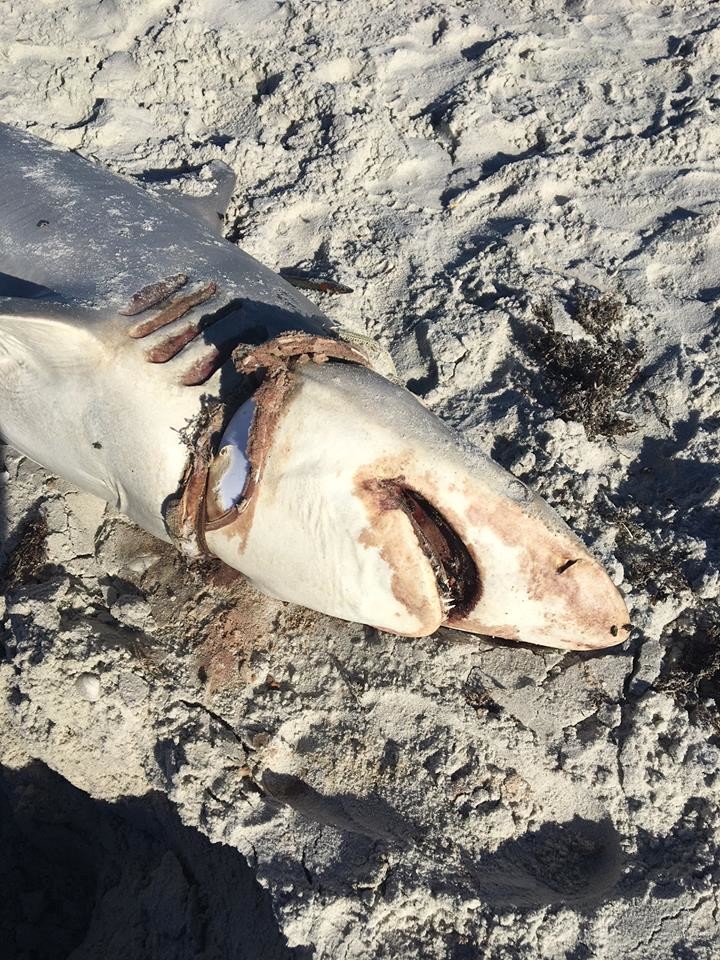Dead shark wrapped in plastic found washed ashore in Ponte Vedra Beach
UNF professor says it proves humans’ overuse of plastics impacts wildlife
A dead finetooth shark was found washed ashore in Ponte Vedra Beach with the plastic brim of an old hat wrapped around its neck and gills on Friday, Oct. 12, and University of North Florida (UNF) professor James J. Gelsleichter believes the incident was both an isolated occurrence and indicative of a larger problem.
According to the St. Johns County Parks and Recreation Department, the shark was 6 feet long, is usually found from North Carolina to Brazil and often migrates through Northeast Florida waters heading south in the early fall.
"Apparently it washed ashore with a plastic strap from a hat," the UNF professor said. "It has been reported before that sharks can sometimes become entangled in plastic or rings."
Gelsleichter, director of UNF's coastal and marine biology program, said the plastic debris that killed the shark likely ended up in the water because a boater's hat fell overboard and no one retrieved it.
"It's really common for people to lose their hats overboard," he noted. "I can't tell you the number of times I've had to turn around the boat because someone didn't hold onto their hat and it fell off. We always retrieve it, just because I want my hat back."
Gelsleichter said the plastic wrapped around the shark and eventually caused it to die. After swimming into a piece of debris, the professor explained that animals can get trapped in plastic that digs into their bodies — leading to death.
"I think this is a chance occurrence," he noted. "But I think at the same time it's kind of a microcosm of the larger problem. We're using so much plastic and as we dispose of it, a large quantity is getting into our water bodies and it can have potential impacts that are relatively unexpected."
Gelsleichter said plastics deposited in the ocean get broken down over time into microplastics, which can be smaller than 5 millimeters in length. Consequently, the contaminant can accumulate in the water, be ingested by wildlife and adversely affect fish and humans.
"This is not a ‘chicken little’ situation where we have to worry about population decline because of plastic wrapping around sharks," he asserted. "But it does demonstrate that our use of plastics can have impacts on wildlife."
A large portion of plastic contamination in the sea is related to the dissolution of larger pieces of plastic, Gelsleichter claimed. The professor’s Shark Biology Program — which has been active for the last decade — has studied microplastic in sharks to determine the effects of water pollution on wildlife and to recommend a solution.
Additionally, the program conducts research on the ecology of shark populations, reproductive biology and the physiology of sharks and their relatives.
For more information on Gelsleichter and his program, visit his UNF faculty page at www.unf.edu/bio/N00634111.







